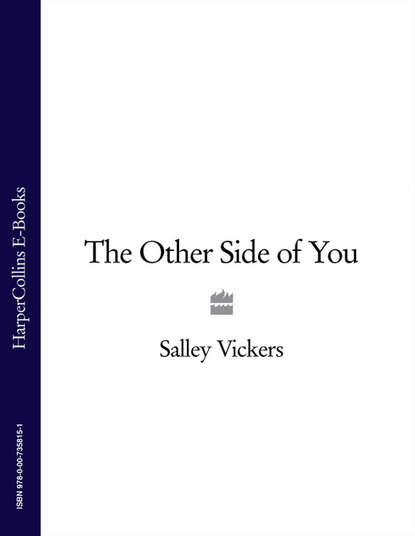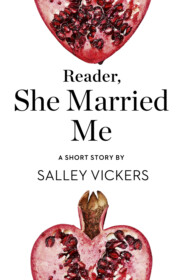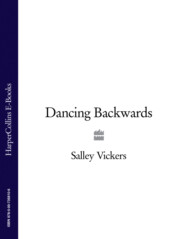По всем вопросам обращайтесь на: info@litportal.ru
(©) 2003-2024.
✖
The Other Side of You
Настройки чтения
Размер шрифта
Высота строк
Поля
‘Insomniacs are often clever,’ Denis interposed swiftly. ‘There’s nothing to say insomnia addles the wits. Mostly the sign of the sharp ones, in my experience. If you must smoke, Daniel, use an ashtray.’ He removed the plate on to which Dan had been flicking his cigarette and fetched a Stella Artois ashtray, which one of their kids must have taken from the pub.
‘Well, no, I mean, she must have talked someone into giving them to her with a view to bumping herself off. Soneryl’s a barbiturate. Not easy to get,’ I explained for Olivia’s sake. She couldn’t have cared less but I always felt this need to include her in these conversations.
‘She give any reason?’
‘Not so far,’ I said. ‘I think the reasons may be existential.’ I rather wished I hadn’t brought up the subject of Elizabeth Cruikshank.
‘Darling, don’t be so pretentious,’ Olivia said, smiling at Dan as if to say: Isn’t he impossible?
‘Things too much for her?’ Dan pursued, ignoring Olivia.
‘Spare me people who have to attract attention to themselves in that “look-at-me” sort of way.’ Olivia finally succeeded in terminating the conversation.
For once I was grateful to her. It suddenly felt like a betrayal to be discussing Elizabeth Cruikshank round a dinner-party table.
5 (#ulink_9a3a9ec5-0c1e-5805-8390-d7a67e7df681)
WHEN I SAW ELIZABETH CRUIKSHANK NEXT, THE LATE-afternoon sun was streaming through the window and lighting up my room. It was a big room, with high ceilings, and one weekend, when Olivia had a friend staying, I’d gone in and painted it white because I couldn’t look a day longer at the existing institutional pale blue and cream. I’d also brought from home some paintings which I’d acquired before Olivia and I lived together. ‘Horrible gloomy thing,’ she’d said of the Orpen, a portrait of a sad-faced clown, I’d picked up at Kettle’s Yard.
I have a bee in my bonnet about pictures being crooked on the wall and one thing Lennie failed at was setting them straight. More often than not his big presence disrupted the paintings so, as my patient was settling in the chair, I walked across and adjusted the clown. I felt her eyes on my back and when I returned to my seat she asked, ‘Who is it?’
‘The painter or the portrait?’
‘The clown.’
I could have responded with, ‘Do you feel like that yourself?’ or something equally alienating but more by luck than judgement I chose to answer the question.
‘I’ve always felt it must be an aspect of the artist. What do you think?’ I never told Olivia this but I’d bought the painting because it reminded me of Jonny.
‘You’d need to know sadness to paint that.’
Something I’d picked up from Dan was that he almost never mentioned food to his anorexic patients. ‘Drives them nuts,’ he used to say. ‘They’ve been questioned till they’re blue in the face about their eating habits, having their food weighed to the last ounce, and God knows what, and when I don’t broach the subject at all they get confused. Breaks their control, see.’
‘Do you like art?’ I enquired.
I didn’t want to confuse Elizabeth Cruikshank or break her control but I didn’t want to go head on again into what had brought her to me. The strategy worked because something rigid about her shoulders relaxed.
‘Some.’
‘Any special artist?’ She appeared to frown so I added, ‘It’s not a trick question.’
‘It’s not that.’
‘Oh, yes,’ I said, imagining she didn’t know how to choose. ‘For me, some days it’s Rembrandt, some days Cezanne, or sometimes, you know, it’s Titian.’
The light was partly obscuring her face—I should really have had blinds but I hate to keep out the sun.
‘I used to like Caravaggio.’
That was a coincidence, though nowadays, of course, plenty of people admire the Italian painter. He was Gus Galen’s favourite. In fact, it was Gus who introduced me to Caravaggio that time when we first met.
‘Come, dear boy,’ he said, pushing me along with his hand on my elbow, after a session on anxiety, ‘I need to walk off some of my own anxiety after hearing those baboons.’
Gus walked faster than any man I knew and he was a terror with traffic. Why his life hadn’t ended under somebody’s wheels I’ll never know. He stepped off the pavement without a thought for the oncoming cars so that to accompany him on the streets was like a cue in a comic film for vehicles filled with swearing drivers to come to a screeching halt. A walk with Gus was a definition of a mixed blessing—his company was to die for, and there was always the possibility that one might.
By the time we got to Trafalgar Square I felt that had I been at all of a religious disposition I might have slipped into St Martin-in-the-Fields to light a candle in gratitude for having reached it in one piece. But Gus, still insistently shoving my elbow, steered me up the steep stone steps of the gallery and navigated us rapidly through its rooms, till we stopped in front of a painting I’d not seen before.
Here Gus let out an explosive snort so that the drowsing attendant’s head started up, fearful that this might herald some act of vandalism. But if the sigh expressed violence it was violence of a harmless sort—that of the innate passion which in Gus was always searching for a suitable object.
The picture he showed me was of a young beardless man, seated in darkness, at a table laid with food. Framing him, on either side, their backs half turned to us, were two seated companions. You could see from their posture that the central figure had just revealed something remarkable. The big-boned man to the left of him was caught, dramatically, in the act of rising to his feet, and his astonished elbow was poking through the torn sleeve of his green jerkin. His raw-nosed companion, to the right, had flung his spread arms wide, so that the large left hand seemed to shoot dangerously out of the frame and almost to poke me in the eye.
‘Who are they?’ I asked, though it was clear who the man at the centre of the table was. As I say, I wasn’t too keen on religion, or its art.
Gus stood looking at the painting as if too preoccupied to have heard me so I read the inscription aloud. ‘The Supper at Emmaus.’
‘What d’you think?’ asked Gus, as if he’d produced a gold coin from my nose or a pair of doves from my ears. ‘Marvellous, isn’t it? Beats having to listen to the babble of those baboons.’
At the time, I didn’t marvel. But it would have been rude to say so, especially at a first meeting. But also something of Gus’s passion rubbed off on me. I didn’t like the painting—I didn’t understand it—but what I did like was Gus’s liking for it. His passion bred passion: that he could so openly avow his own love for it made me love him. And now this painting, which I had encountered so many years earlier, gave me my first glimmer of insight into Elizabeth Cruikshank. Beneath that pallid exterior there must be passion too, however carefully concealed. But all I said was, ‘A dear friend of mine, Dr Galen, loves Caravaggio’s work. He’s an analyst, too. A very original one. It’s he who says there’s no cure for being alive.’
‘That’s what you said last time.’
So she had taken it in. ‘Yes. Gus’s words. I’m afraid I’m not original. He feels that people aren’t ill so much as lacking a meaning to live. He thinks our job is to help them to find it.’
‘That might be rather a tall order.’ There was the ghost of a smile in her voice.
‘Yes. And possibly arrogant, you may be thinking?’
‘No, I wasn’t thinking that.’
She lapsed back into silence and I dropped into a reverie.
Some patients, however little they say, keep your attention tied to them so that the silence is an effort. I’ve learned that this is anger. Angry people press on you, hold you down to keep you with them. But it was easy to drift off with Elizabeth Cruikshank. She didn’t mug you with her presence; she let you go as lightly as a dandelion seed.
I was contemplating this when she spoke again. ‘Why on earth would anyone want to bother with people like us?’
For a second I supposed she was referring to the two of us. Then, with a sense of slight shock, I recovered myself and recognised her allusion was to me as doctor and herself as patient.
‘What are people like “us” like?’
She gave one of her little dismissive shrugs. ‘People like me, then.’
‘And what would you say you were like?’
The ginger tom was back balancing on the fence outside. It had an air of entitlement which in a human would be psychopathic. Perhaps that was why I so disliked it. It took for granted something I could never take.
‘Oh, I don’t know,’ she said, listlessly. ‘Not very interesting.’
‘Well,’ I said, ‘I don’t know that anyone is uninteresting once you get to know them.’











